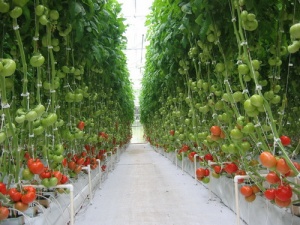Both plants and humans have several similar characteristics. They require stability to work in their best levels. This comprises consistent health condition and limited stress agents. Yes, plants do get stressed like human being. If growing states are altered a little, plants can be sent into shock, become noxious, or will just gradually wither away.
To stop plants from getting stressed, it is essential to establish an appropriate growing environment from the very beginning. This is a proactive means to make sure the best plant growth possible. It is particularly essential for growing food-producing plants, because your garden must be considered an investment. By restoring your hydroponic garden back to a secure environment, you can make your plant stress free.
Signs of plant stress:
• Dark patches
• Bleaches spots
• Wilting leaves
• No blooming
• Ragged leaves
• Dried edges on leaves
How to avoid plant stress:
The most ideal means to distress your plant is to maintain a secure growing environment. This must comprise:
• Maintain water, temperature & pH at a constant level
• Ignore breaking roots and take away dead leaves on a regular basis.
• Not keeping plant under too high or low light intensity
• Maintaining proper nutrient levels
• Maintaining appropriate ventilation, humidity and temperature levels.
• Preventing mold and pests and controlling them instantly as they appear, stressed plant encourages further growth of pests & diseases
• Ensuring appropriate Co2 levels are accessible for plant to perform photosynthesis.
 By adding natural bio-stimulants to your Hydroponic nutrient solution, you will assist your plant in several ways. You will aid plant roots better nourish the nutrient solution and improve the plants’ plant’s resistance to bugs & diseases. Both of these enhancements will better repare your plants to deal with stress. These enhanced conditions also guide to greater yields.
By adding natural bio-stimulants to your Hydroponic nutrient solution, you will assist your plant in several ways. You will aid plant roots better nourish the nutrient solution and improve the plants’ plant’s resistance to bugs & diseases. Both of these enhancements will better repare your plants to deal with stress. These enhanced conditions also guide to greater yields.
No comments:
Post a Comment